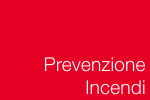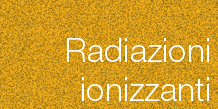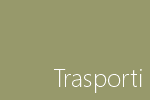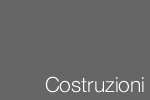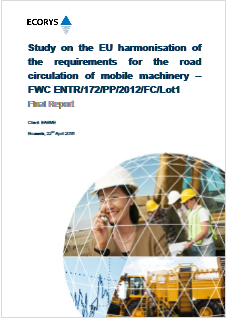Harmonisation framework mobile machinery
Study on the EU harmonisation of the requirements for the road circulation of mobile machinery
Mobile machinery is indispensable for the proper functioning of the agricultural, construction, municipal equipment, lifting/handling, gardening and forestry sectors. Various initiatives at an EU level have been undertaken to harmonise the requirements of the sector. These include (non-exhaustive list):
- the Non-Road Mobile Machinery (NRMM) Directive 97/68/EC;
- the Outdoor Noise Equipment Directive 2000/14/EC;
- the revised Machinery Directive 2006/42/EC;
- the Regulation (EU) No 167/2013 on the approval and market surveillance of agricultural and forestry vehicles.
As a consequence of these EU efforts and initiatives, at least parts of the sector and its products have harmonised requirements today. However, disparate technical requirements, including third-party certification, remain at national level and create an additional burden on the industry. The lack of harmonisation entails additional costs for various actors along the value chain.
These costs primarily impact manufacturers (small and medium-sized as well as larger companies), where non-harmonisation causes difficulties in innovation, longer periods for the development of marketable products and necessary variants which comply with quite different provisions of Member States and delays in the introduction of new products within the EU, because of multiple third-party testing and certification.8 However, these costs may also have a bearing on the proper functioning of the agricultural, construction, municipal equipment, lifting/handling, gardening and forestry sectors for which this machinery is produced.
Since the publication of the Ifo (2001) study, which already assessed the costs of non-harmonisation, the number of Member States has almost doubled (from 15 to 28 Member States) and EU regulation and national regulations have evolved.
In several Member States, national regulations have been tightened since and the divergence between Member States appears to have grown over time. In essence, the issue at stake remains the same - non-harmonisation causes costs. However, the scale of the problem appears to have increased since and it risks to further increase in the future. Therefore, a new and updated assessment of the state-of-play with respect to non-harmonised requirements and their impacts is considered timely and necessary by the EC. In this context, the present study supports an Impact Assessment through outlining
Ecorys Brussels N.V.
2016
Regolamento (UE) 2016/1628 NRMM
Direttiva Emissioni da Macchine Mobili non Stradali (NRMMD)










